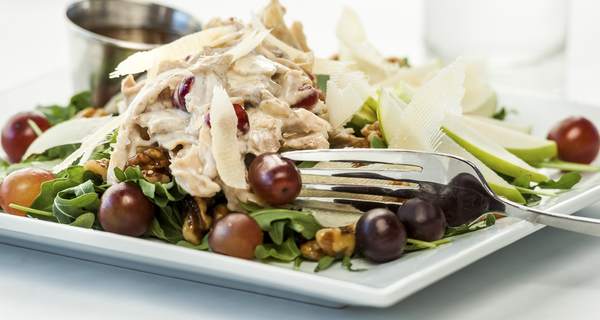Diet Plan and Weight Loss Basics
Making the decision to revamp your diet and shed some pounds takes courage, dedication, time, and effort, but it’s completely possible. Choosing the right approach can mean the difference between short-term, fleeting results and lasting success.
Before embarking on any weight-loss plan, it’s wise to check in with your doctor. This is especially important if you struggle with any serious weight-related health problems. It’s also smart to surround yourself with other experts, friends, and family members who will support you. Besides boosting your confidence, they can empathize when you meet setbacks and offer fresh ideas on what might work.
Educate Yourself
The seemingly endless weight loss options can be overwhelming. Whether it’s from a magazine, a clinic at a hospital, a storefront at a mall, or a book your coworker lent you, make sure to research each weight-loss plan thoroughly. The Internet is a great source of diet reviews, but be wary of the reviews that always seem to promote one plan over the rest. Once you’ve narrowed your options ask yourself the following questions.
What Is Day-to-Day Life on this Plan Like?
Set yourself up for success by selecting a plan that is doable. For example, if you adore pasta and bread, you are setting yourself up for failure by choosing a low-carb diet. Juggling a full-time job and three kids might leave you with no time to attend weekly weigh-in sessions. Not to worry. There’s a plan out there for everyone.
How Many Daily Calories Can You Have, and Will that Change as You Lose Weight?
Some plans, including cleanses, ask followers to adhere to extremely strict calorie allotments. But too few calories can leave you physically drained and can exhaust your willpower. Not to mention the fact that your body will go into starvation mode, hanging on to the few calories you do put in.
Many people have found success with the 500 Rule. Slashing 500 calories a day leads to a loss of 1 pound per week (1 pound equals 3,500 calories). But for some people, especially those who are very active, slashing 500 calories can be too much and leave them without the energy they need. The ballpark figure doesn’t factor in gender, activity level, or muscle mass — all of which affect how many calories your body needs each day. Check in with your doctor or a nutritionist to get their input. These professionals may suggest a more tailored approach to calorie reduction.
According to the Weight-Control Information Network, a safe and attainable goal is 1 to 2 pounds per week. When you lose at this slower pace you’re more likely to keep the weight off.
What Types of Foods Will You Be Eating, and Are Any Foods “Off Limits”?
A sensible weight-loss plan will involve plenty of:
- vegetables
- fruits
- whole grains
- lean protein
- low-fat or fat-free dairy
- healthy fats
- occasional snacks
Take a look at a week’s worth of eating plans, and ask yourself, “Is this doable for me? Would I enjoy eating these foods, not just for a week or a month, but for the rest of my life?”
You should also be encouraged to drink plenty of water. Today, many experts say that you don’t necessarily need eight 8-ounce glasses a day. Instead, you should drink enough to produce urine that is pale in color. This pale color indicates a well-hydrated body.
If a plan labels a food or food group “off limits,” it will likely be too difficult to adhere to for an extended period of time. We can’t live on cabbage soup alone. It is good, however, to avoid foods that are widely accepted as being unhealthy, such as fried foods and high-fat processed meats. As soon as you resume eating those foods, the weight will come right back.
Look for a plan that allows some amount of flexibility. Hard and fast rules may lead to weight loss, but they are often the cause of post-diet weight gain. Perhaps a plan that allows you “cheat meals” or “free days” will be just the freedom needed to allow you to lose weight while still indulging in the occasional treat.
Does the Plan Involve Physical Activity?
Beware of too-good-to-be-true plans that promise weight loss without working up a sweat. Any solid plan will require increased physical activity. Besides torching calories, working out benefits your health in countless other ways. It boosts your mood and raises your high-density lipoprotein (“good”) cholesterol level. According to the National Institutes of Health, exercise reduces your risk of a host of chronic diseases including:
- heart disease
- osteoporosis
- type 2 diabetes
- certain types of cancer
According to the NIH, about 2.5 hours of exercise per week is a reasonable goal. Getting some amount of physical activity each day will help you create a lasting healthy habit. By combining cardiovascular exercise with strength training and flexibility training, you can get the most of your time spent working out.
Is There a Cost Involved, and If So, What Is It?
Make sure you can afford the plan and look for hidden costs. Some programs may require you to purchase the company’s frozen meals, yet others will teach you to shop for groceries on your own. If a plan demands you purchase the company’s supplements, walk away. There are truly countless diet and weight-loss plans out there. Finding the right one for your particular goals and lifestyle can seem overwhelming. By knowing what to look for you can narrow down the field and hone in on those that offer lasting, healthy results.
-
Is cardio alone enough for weight loss? (Fitness query of the day)
-
How much rest do you need between sets of exercise?
-
5 tips to burn belly fat
-
Overview
Are you tired of the diet-and-exercise approachto losing weight? Do yo
-
How this 115 kg man lost weight will motivate you
-
Lose half a kg in a week with these 10 simple ways
- DON'T MISS
- 5 habits that are making you fat!
- How this 115 kg man lost weight will motivate you
- 10 awesome fitness workouts to keep you in shape!
- 8 vegetables that will help you lose weight
- What you need to do before starting a fitness regime — excerpt from Shut Up and Train!
- What to eat for dinner to lose weight?
- Tips for a healthy Christmas
- Don’t lose out, work out says Rujuta Diwekar in her new book (Interview)
- Can kissing help you burn calories and lose weight?
- Try side plank pose variation to lose weight from your entire body




